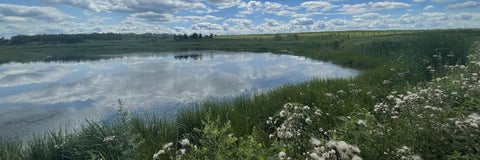
What's Happening in Earth and Environmental Sciences
Featured News
Celebrating thirty years of the Farvolden lecture series
December 23, 2025
This year marks the thirtieth anniversary of the Farvolden lecture series. Hosted by the Department of Earth and Environmental Sciences, this annual lecture honours Dr. Robert Farvolden, who established the department’s world-renowned groundwater research program in the 1970s.
A year of milestones
December 22, 2025
As 2025 comes to a close, faculty and staff in Earth and Environmental Sciences are looking back on a year of milestones. Four members are being recognized for their long-time service to the department, and six are also stepping into retirement.
Tracking methane in inland waters
November 25, 2025
Fourth-year Earth Sciences student Joey Ruck is investigating the use of a scientific echosounder to estimate gas accumulation in the sediments of the Belwood Reservoir.
Featured Events
Faculty of Science 2025 Alumni Achievement Awards
January 29, 2026
Our Faculty of Science alumni are excelling in their chosen fields, and our annual Alumni Awards celebrate their dedication and commitment.
Please join us in celebrating our exceptional 2025 Science Alumni Achievement Award recipients!
World Wetlands Day 2026
February 2, 2026
Join us for the 14th Annual World Wetlands Day Research Symposium at the University of Waterloo. The event will consist of a poster session and reception on the first and second floors, followed by a distinguished lecture by Dr. Sarah Finkelstein in EIT 1015, entitled:
"From Biidasige Park in the Toronto Port Lands to the Winisk River on Ontario’s North Coast: linking paleoenvironmental research and Indigenous knowledge to support wetland conservation in Ontario"
Toronto Alumni Reception during PDAC
March 2, 2026
Join us for the Faculty of Science’s annual Toronto Alumni Reception at PDAC, a signature event that welcomes all Waterloo Science alumni in the GTA and beyond.